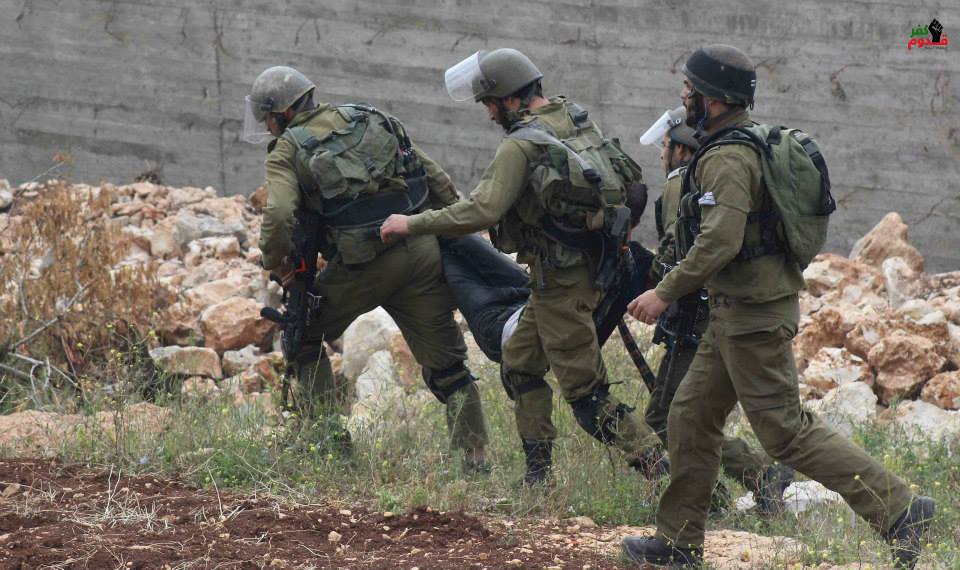Tag: Prisoner Day
-
Israeli forces shot five in Kafr Qaddum
17nth April 2015 | International Solidarity Movement, Huwwara Team | Kafr Qaddum, Occupied Palestine This week’s Friday demonstration in Kafr Qaddum followed the same violent pattern as the previous ones during the past weeks. The Israeli occupation forces began their shooting before the demonstration even started. Soldiers and border police fired tear gas, stun grenades, rubber-coated steel bullets and live ammonition…
-
Support the Hares boys this Prisoners’ Day
14th April 2014 | International Solidarity Movement | Occupied Palestine 17th April, Palestinian Prisoners’ Day, is a global day of action. Join to demand justice for the Hares Boys, as well as all Palestinian children incarcerated by the Israeli military regime. What you can do: 1. Organise an Event – a sit-in, a demo, a protest, a silent dance,…



